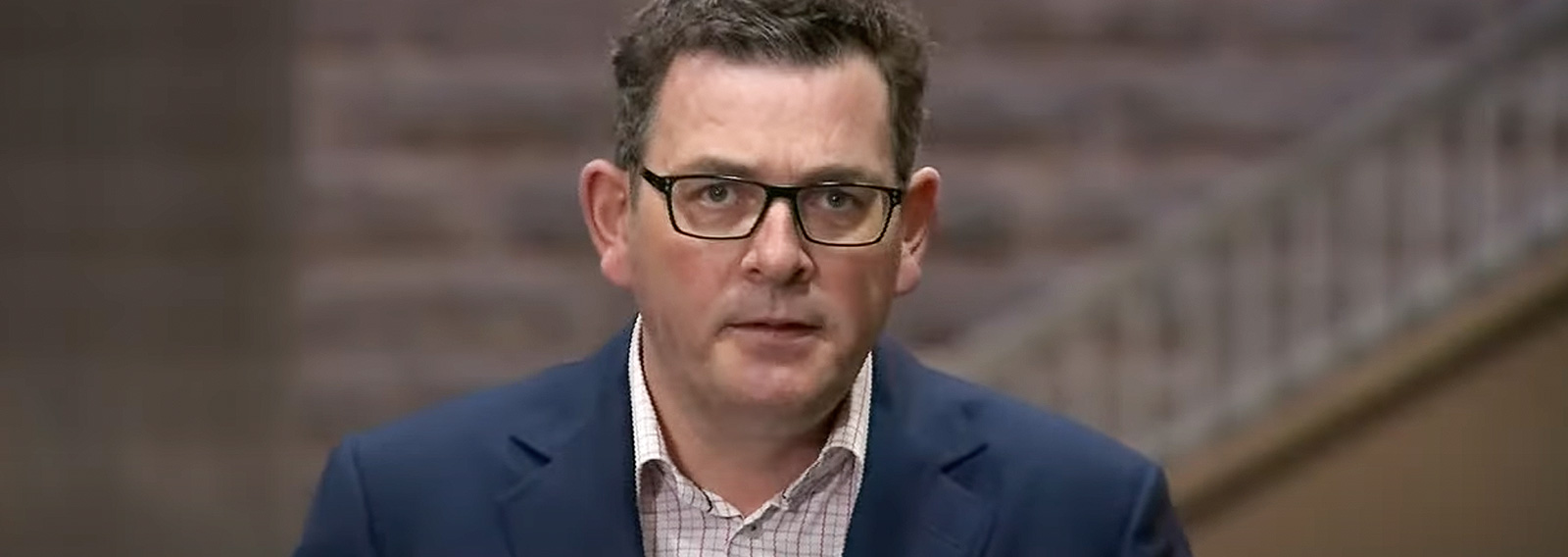This week, new legislation is set to be introduced to Victorian Parliament to ensure that the State’s Premier can pretty much do what he likes, including extending emergencies for three months at a time – a dramatic change from the standard 14 days. Premier Daniel Andrews said the new laws were drafted to reflect the lessons learnt during the COVID-19 pandemic.
Let’s take a look at what those lessons may have been.
Victorian opposition leader Matthew Guy has called the Public Health and Wellbeing Amendment (Pandemic Management) Bill 2021 aptly dubbed the Permanent Pandemic Bill as “the most extreme” pandemic legislation of any state or territory in Australia. Mr Guy said: “[p]lacing so much power in the hands of one person … would be unprecedented”.
The current state of emergency extension which has been in place for 21 months in Victoria is due to expire on December 15. Instead of experiencing freedom once again, Victorians may find themselves in lockdown once again based on a potential pandemic. This new Bill will allow the harshest measures for the longest periods ever – anywhere.
Under the new laws, the Health Minister of Victoria, The Hon. Martin Foley would sign off on Public Health Orders, rather than the Chief Health Officer, providing the Health Minister with “broad powers” to make orders where reasonably necessary to protect public health.
The problem with this is: measures such as lockdowns, mask-wearing, mandates and other emergency management measures which are violations of our personal freedoms can all be decided by one person, without parliamentary due process, without the required political and legal consultation of the finer details with colleagues or professionals of the impacts of such measures: resulting in fewer checks and balances for decision making.
The Chief Health Medical Officer who would usually advise on, and sign off on the health directions and Orders based on his medical background and knowledge, will no longer be a required step by the Health Minister. The Health Minister is an elected member of Parliament and may not have any knowledge or expertise in their political portfolio.
In Victoria’s case, for example, the Health Minister for Victoria has a background as a Union Official. How does this qualify him to make State-based health decisions resulting in orders and directions which affect people’s everyday economic and social lives based on ‘health’ advice?
The benefit of having a Chief Health Medical Officer (CHMO) is not only that they are an expert in the required area, but that Professor Brett Sutton in Victoria as the CHMO for example is also somewhat removed from the parliamentary process as a public servant and therefore part of the Executive, rather than the legislature.
Here, we see another erosion of not only the separation of powers, but also of the rule of law, insofar as laws often afford checks and balances that apply to our leaders to ensure that they do not operate beyond, or above the law.
Amendments of concern include the shift in the definition of ‘pandemic disease’. Section 7 states: “For the purposes of the Act, an infectious disease is a disease of pandemic potential at a particular time if: (a) at that time, the infectious disease has the potential to give rise to a pandemic, but is not yet a pandemic disease, and (b)(i) before that time, the infectious disease was a pandemic disease”.
The difficulty with this is the definition of a pandemic is so broad, that it includes a ‘potential pandemic’ and ‘before’ the infections disease becomes a pandemic. This is an entirely subjective measure, and the taking away of individual freedoms requires a more objective approach to measure what constitutes a ‘pandemic’.
Part 8A of the Bill, which deals with the Protection of life and public health during pandemics also outlines an intention to preempt pandemics and act in accordance to this ‘potential’, without the required evidence to support the fact that there is an actual pandemic.
Section 165A(1)(a) states: “The objective of this Part is to protect public health and wellbeing in Victoria by establishing a regulatory framework for preventing and managing the serious risk to life, public health and wellbeing presented by the outbreak or spread of pandemics and diseases of pandemic potential”.
Further to this, section 165AB(3)(a) and (b) states: “The Premier may make a pandemic declaration whether or not, at the time the declaration is made; the pandemic disease is present in Victoria, or the disease is a disease of pandemic potential that is occurring or has occurred in Victoria”.
Section 165AE(8)(b) which deals with Variation, extension and revocation of pandemic declarations specify that the Premier may vary or extend the pandemic declaration based on the fact that the ‘disease’ was “a disease of pandemic potential at that time”. A pandemic potential.
This board definition of ‘pandemic potential’ raises the legal issues of proportionality, inconsistency and unconstitutionality.
Whenever I swim in the ocean, there is a real potential I will be eaten by a shark – especially in Perth! Should we, therefore, mandate a ban on swimming at the beach?
Whenever I get into my car to drive from A to B, there is always a potential for a car accident – given the number of idiots on the road! How do we legislate against this potential?
The Bill includes an Independent Pandemic Management Advisory Committee established under section 165CE(1) of the Bill, which will apparently include public health and human rights experts to review public health orders.
Given that Victoria already has a Charter of Human Rights and Responsibilities Act 2006, and we have seen a lack of acknowledgement of the rights of Victorians in the last 20 months – what is this apparent Committee to review Orders for ‘potential pandemics’ going to change?
Rights and freedoms, explicitly outlined in the Victorian Human Rights Charter applicable to all Victorians such as the freedom to privacy (s13); freedom of movement (s12); freedom of expression (s15); peaceful assembly and freedom of association (s16); the right to liberty and security of person (s21); taking part in public life (s18); and the recognition and equality before the law (s8) have all been overlooked and ignored during the “state of emergency”.
Inalienable human rights such as the right to life, the right to work, freedom of conscience, speech, movement and association and the freedom of religion are endowed upon us by God, as recognised by Elanor Roosevelt, a drafter of the Universal Declaration of Human Rights in 1946, and therefore cannot be taken away from anyone by any other person or by law.
A further problem with this proposed Bill is that the State Government had waited until 6pm the night before the Bill was due to be introduced into parliament to brief Ministers on the laws that affect every Victorian. This is a common political strategy to ensure a lack of parliamentary debate and negotiation in relation to the specific sections of the Bill.
Are Victorian Politicians even aware of the unintended consequences that will arise from such amendments to already-laxed laws in the form of emergency powers?
Indeed, it was through Emergency powers that Hitler rise to power and retained his power under the Enabling Act 1933 for the next five years during WWII. On March 24, 1933, the Reichstag passed the Enabling Act, which gave Hitler executive authority without any pretence of parliamentary power.
For a proposed law to not be debated properly, to be rushed through parliament, for it to violate several individual human rights at the same time as being the harshest ‘pandemic response’ laws based on a ‘potential pandemic’– there is only one thing left: Federal intervention based on section 109 of the Constitution – inconsistency.
It appears that the lessons Premier Andrews was referring to learning from the last 20 months was that he did not wield enough power during the pandemic and that he wanted more – and has now found a way.
It is now incumbent upon Prime Minister Scott Morrison to intervene and to tear down the tyranny and abhorrent violations of inalienable human rights and freedoms over Victorian citizens before other State Premiers get any ideas!
ScoMo – where are you?
Australians are counting on you.
With a Federal Election coming up – your decision today will affect your position tomorrow.





















